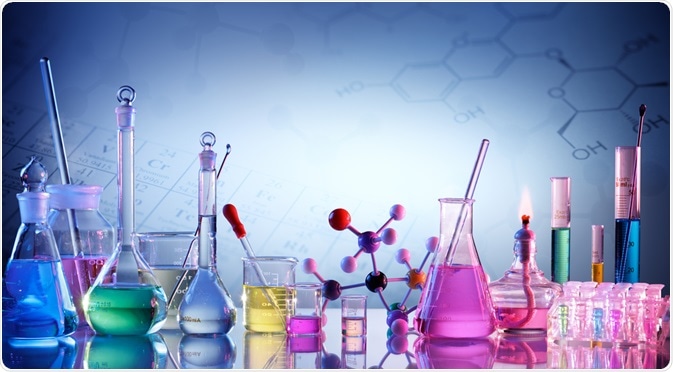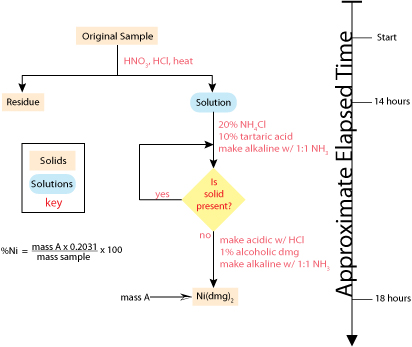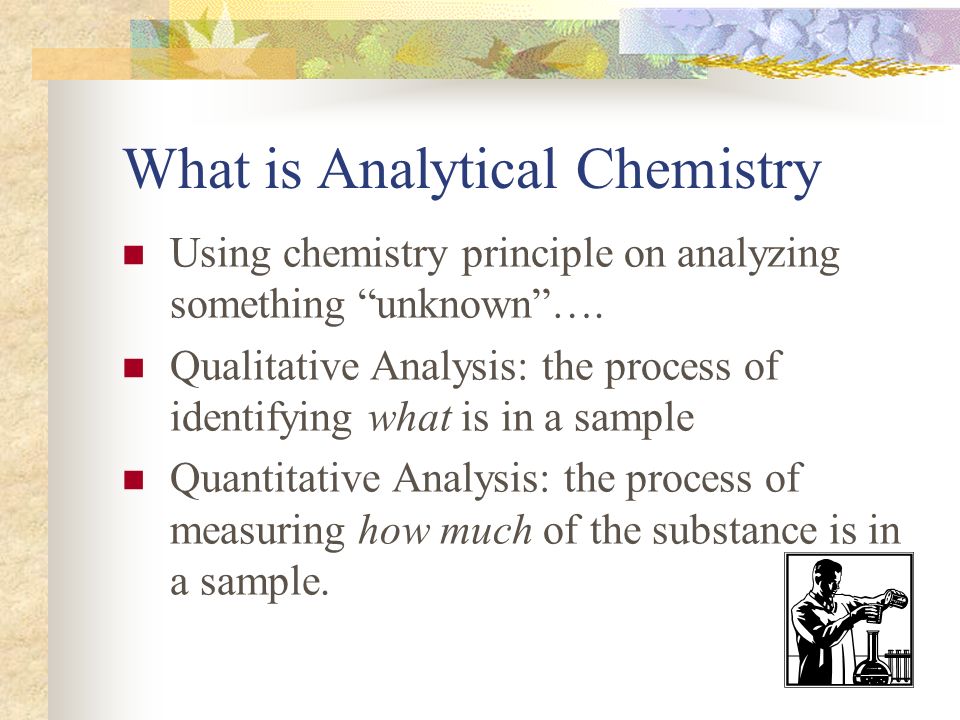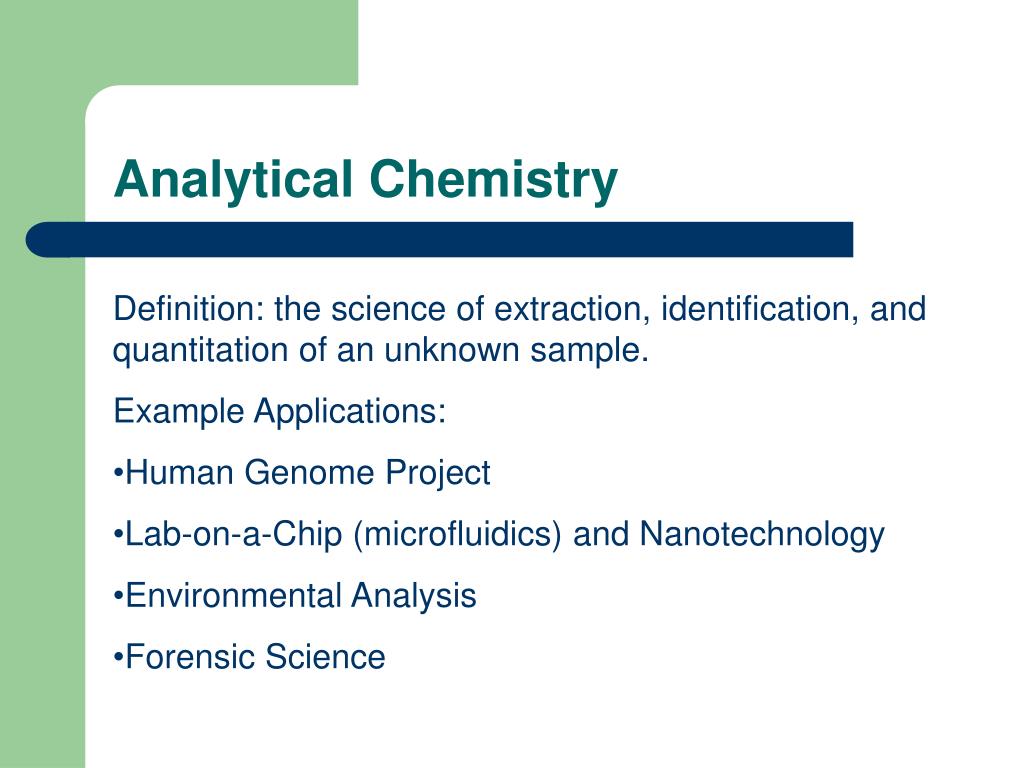I Changed My Mind About Example Of Analytical Chemistry. Here’s Why

Tang, M. L., Zhang, J., Zhuang, S. L., and Liu, W. P. (2012 ). Tu, W. W., Lei, J. P., Jian, G.
X. (2010b). Tu, W. W., Lei, J. laboratory quality management system. P. lab layout., Ding, L., and Ju, H. X. (2009 ).
Chem. Wang, Y., Li, Y. M., Tang, L. H., Lu, J., and Li, J.
( 2009 ). Wu, S., Ju, H. X - setting up a laboratory., and Liu, Y. (2007b).

X., and Chen, H. Y. (1999 ). Hydrogen peroxide sensor based upon HRP-labeled Au colloid paralyzed on gold electrode surface area by cysteamine monolayer. Anal. Chim. Acta 391, 73. Xue, Y. D., Ding, L., Lei, J. P., Yan, F., and Ju, H. X. (2010 ). In situ electrochemical imaging of membrane glycan expression on micropatterned adherent single cells.
Chem. 82, 7112. Pubmed Abstract Pubmed Complete Text Cross, Ref Complete Text Yang, X. H., Zhang, X. M., Li, A. Z., Zhu, S. Y., and Huang, Y. P. (2003 ). Comprehensive two-dimensional separations based on capillary high-performance liquid chromatography and microchip electrophoresis. Electrophoresis 24, 1451. Pubmed Abstract Pubmed Full Text Cross, Ref Complete Text Yao, W., Le Goff, A., Spinelli, N., Holzinger, M., Diao, G.-W., Shan, D., et al.
5 Things The Govt Hasn’t Told You About Analytical Chemistry Services
Electrogenerated trisbipyridyl Ru (II)-/ nitrilotriacetic-polypyrene copolymer for the easy fabrication of label-free photoelectrochemical immunosensor and aptasensor. Application to the determination of thrombin and anti-cholera contaminant antibody. Biosens. Bioelectron. 42, 556. Pubmed Abstract Pubmed Complete Text Cross, Ref Complete Text Yuan, Q., Lu, D. Q., Zhang, X. B., Chen, Z., and Tan, W.
( 2012 ). Aptamer-conjugated optical nanomaterials for bioanalysis. Trac-Trend Anal. Chem. 39, 72. Zhai, C., Li, C., Qiang, W., Lei, J. P., Yu, X. D., and Ju, H. X. (2007 ). Amperometric determination of carbohydrates with a portable silicone/quartz capillary microchip by developed fracture sampling. Anal. Chem. 79, 9427. Pubmed Abstract Pubmed Full Text Cross, Ref Full Text Zhao, Q., Wu, M.
C., and Li, X. F. (2012 ). Applications of aptamer affinity chromatography. Trac-Trend Anal. Chem. 41, 46. Zhu, Z. L., Chan, G. C. Y., Ray, S. J., Zhang, X. R., and Hieftje, G. M - medical laboratory design layout. (2008 ). Microplasma source based upon a dielectric barrier discharge for the determination of mercury by atomic emission spectrometry.
Chem. Zong, C., Wu, J., Wang, C., Ju, H. X., and Yan, F. (2012 ). Chem.
10 Trailblazers Leading The Way In Types Of Laboratories In The World

, medicine, and ecological science. Analytical chemistry provides a wide range of applications, lots of individuals are still unaware of how it works in genuine life and why it is so important.
Analytical chemists use different chemical reactions and strategies to recognize the analyte and determine how much of it exists in a provided sample. These strategies vary from basic weighing jobs to sophisticated analyses including modern instruments, such as a Mass Spectrometer (MS), a Gas Chromatograph (GC), a High-Performance Liquid Chromatograph (HPLC), an Ion Chromatograph (IC), and others.
Evidently, analytical chemistry techniques are widely used by natural and inorganic chemists. Whenever researchers desire to identify the concentration of samples or the content of the product, they refer to analytical chemistry approaches.
Medical chemistry is based on the biochemical analysis of human biological specimens or body fluids.
Have They Been Lying To You About Lab Space?
In any case, analytical chemistry allows medical laboratory scientists to provide accurate outcomes of lab tests purchased by a doctor. Along with enabling medical lab researchers to carry out body fluid analyses, analytical chemistry also assists healthcare specialists determine illness and propose effective treatment techniques. Determining the level of nutrients or the quantity of toxic waste in body fluids allows doctors to detect various diseases and health conditions.
In order to deal with complex criminal cases, forensic scientists perform various analytical tests involving both easy and sophisticated techniques. As analytical chemistry and molecular biology advance, their function in forensic examinations boosts.

By carrying out numerous analytical tests, researchers get a much better concept of how safe or effective brand-new medicines are. Without analytical chemistry, chemists would not have actually been able to study the physical and chemical homes of drugs.
Environmental pollution refers to the pollution of air, water, and land, which negatively impacts our world in numerous different ways. Environmental pollution is the main reason for environment change and it is of huge importance to keep track of and manage the content and quantity of pollutants. And this is when analytical chemistry enters into play.
What Research Says About Quality Systems Lab
Analytical chemistry provides extensive applications in quality control.
Last however not least, analytical chemistry is of substantial value in the agricultural market.
Federal government sites often end in. gov or. mil. Before sharing sensitive info, ensure you’re on a federal government site.
In the broadest sense, the area of analytical chemistry consists of the theory and practice of chemical separation, identification, and measurement. As such, it is a necessary part of practically every experimental chemist’s work, no matter his/her field. For a lot of us, analytical chemistry is a field of expertise.
What Your Friends Wont Tell You About Analytical Chemistry Skills

This analysis is not restricted to the decision of chemical structure, however includes the analysis of the chemical interactions in balance systems, decisions of structure, response kinetics and mechanisms, the analysis of chemical system-measurement system interactions, the analysis of measurement mistakes, etc. To put it simply, analytical chemists look for the answers to the concerns: “What is the most complete and precise description of the chemical system or process?”; “What is the most reliable means of acquiring the preferred information about the system or process?”; and “What do the measurements that are made to this end really indicate?” Numerous analytical chemists study chemical systems for their theoretical, industrial or biological value.
Still others who concentrate on the issue of improving chemical measurements end up being deeply associated with the optics, electronics, automation, and physical chemistry of measurement systems. In brief, it is a most rewarding location of chemistry for those people who are interested by the procedures of experimentation and discovery. In an independent survey, the analytical program at Michigan State University was ranked as one of the absolute best in the country.
Secret features of the program consist of a solid core of coursework in the context of a flexible study and assessment system, a broad spectrum of active research areas, opportunities for research jobs which combine aspects of analytical with other areas of chemistry, outstanding laboratory facilities and equipment, important teaching experiences, and excellent financial backing.
This combination of strengths has drawn in a fine group of students to study analytical chemistry at MSU. At present, there are 53 analytical graduate students. They have obtained their bachelor degrees from colleges and universities of all sizes throughout the United States and the World. A list of present trainees, their colleges and home towns is provided in a later area of this sales brochure.
What We Got Wrong About Analytical Chemistry Labs
Five of our present trainees hold departmental Quill Fellowships. On the nationwide scale, more of our trainees have won full-year Analytical Division (ACS) Fellowships than any other department in the country. For numerous years, scholastic and industrial openings for Ph. D. analytical chemists have actually gone beyond the supply. Possible companies have put Michigan State University high on their list of sources for M.S.
D. analytical chemists. A choice of task opportunities for that reason awaits the trained analytical graduate.
identify the structure, structure, and nature of compounds by taking a look at and recognizing their different elements or compounds. They also study the relationships and interactions among the parts of substances. Some analytical chemists focus on developing brand-new approaches of analysis and brand-new strategies for carrying out their work. Their research study has a vast array of applications, consisting of food safety, pharmaceuticals, and contamination control.
Chemistry Lab Setup Is Out. Here’s What’s In
Summary, chemistry, determination of the physical residential or commercial properties or chemical structure of samples of matter. A big body of systematic treatments intended for these purposes has been continuously developing in close association with the development of other branches of the physical sciences since their beginnings. Chemical analysis, which counts on the use of measurements, is divided into 2 categories depending upon the way in which the assays are carried out.
The item could be coloured or might be a strong that precipitates from a solution.
You can get more professional recognition by accomplishing chartered status as a Chartered Chemist (CChem) or a Chartered Researcher (CSci). For more info on the requirements needed to attain chartership, see RSC Professional Acknowledgment. Profession prospects are typically good for analytical chemists with need growing throughout a number of markets such as ecological tasting screening.
Increased obligation will normally include the training and guidance of other analytical staff. With the ideal combination of skills, experience and credentials, there are chances to advance into senior analytical chemist positions and then on to a laboratory management role. There are also opportunities to move into task management, managing all aspects of a job from start to end up - system laboratory requirements.
The Ultimate Cheat Sheet On Chemistry Lab Setup
You could likewise move into teaching, lecturing or science interaction.
is the chemistry discipline that studies the chemical structure of materials and develops the tools used to analyze chemical compositions. It includes damp lab chemistry in addition to usage of instrumentation. Analytical chemistry is important in science, engineering, medication, and industry. Analytical chemistry utilizes standards and error analysis.
Strategies utilized in qualitative analysis consist of chemical tests, spectroscopy, spectrometry, microscopy, flame tests, and bead tests. Quantitative analysis uses analytical balances, gravimetric analysis, volumetric analysis, and separation strategies, such as purification, centrifugation, and chromatography. There is overlap of strategies utilized in between the 2 branches, particularly since samples may need purification in order to identify them.
( 2012 ). Analytical Measurement: Measurement Unpredictability and Statistics. ISBN 978-92-79-23071-4 (most qualified). Skoog, Douglas A.; West, Donald M.; Holler, F. James; Crouch, Stanley R. (2014 ). Principles of Analytical Chemistry. Belmont: Brooks/Cole, Cengage Learning. ISBN 978-0-495-55832-3.
The Secret That All The What Is Analytical Chemistry Experts Don’t Want You To Know
An Analytical Chemist is a researcher that studies and checks the chemical composition and behaviors of several compounds. Analytical Chemists perfor controlled experiments to check out the exact chemical elements of a substance. Normally they will evaluate different samples to find what it is made from and how it reacts under particular conditions.
In addition, Analytical Chemists may be required to work on research teams and collaborate with other specialists to accomplish their end objective. Analytical Chemists invest most of their time in labs and workplace environments.

You can acquire further expert acknowledgment by accomplishing chartered status as a Chartered Chemist (CChem) or a Chartered Scientist (CSci) - analytical chemistry technique. To find out more on the requirements required to achieve chartership, see RSC Expert Acknowledgment. Profession prospects are typically helpful for analytical chemists with need growing across numerous industries such as ecological tasting screening. analytical chemistry labs.
Increased responsibility will generally consist of the training and guidance of other analytical staff. With the best mix of skills, experience and credentials, there are chances to advance into senior analytical chemist positions and then on to a lab management function. There are likewise chances to move into job management, handling all elements of a task from start to finish.
4 Fascinating Reasons People Like Examples Of Analytical Chemistry
You could likewise move into mentor, lecturing or science communication.
is the chemistry discipline that studies the chemical structure of products and develops the tools utilized to examine chemical structures. It involves damp lab chemistry in addition to usage of instrumentation. Analytical chemistry is crucial in science, engineering, medication, and market. Analytical chemistry uses standards and mistake analysis.
Techniques used in qualitative analysis include chemical tests, spectroscopy, spectrometry, microscopy, flame tests, and bead tests. Quantitative analysis utilizes analytical balances, gravimetric analysis, volumetric analysis, and separation methods, such as filtering, centrifugation, and chromatography. There is overlap of techniques used between the 2 branches, especially considering that samples may require purification in order to identify them.
( 2012 ). Analytical Measurement: Measurement Uncertainty and Data. ISBN 978-92-79-23071-4. Skoog, Douglas A.; West, Donald M.; Holler, F. James; Crouch, Stanley R. (2014 ). Basics of Analytical Chemistry. Belmont: Brooks/Cole, Cengage Learning. ISBN 978-0-495-55832-3.
4 Things Only Die-hard Fans Get About Example Of Analytical Chemistry

An Analytical Chemist is a scientist that research studies and checks the chemical structure and behaviors of numerous different compounds. Analytical Chemists perfor controlled experiments to check out the precise chemical components of a compound. Normally they will evaluate various samples to discover what it is made from and how it responds under certain conditions.
They need to then write complicated technical reports detailing their findings (analytical chemistry testing). In addition, Analytical Chemists might be needed to work on research teams and team up with other professionals to attain their objective. Analytical Chemists invest most of their time in laboratories and workplace environments. In the laboratories, they conduct various experiments while handling perhaps dangerous chemicals.